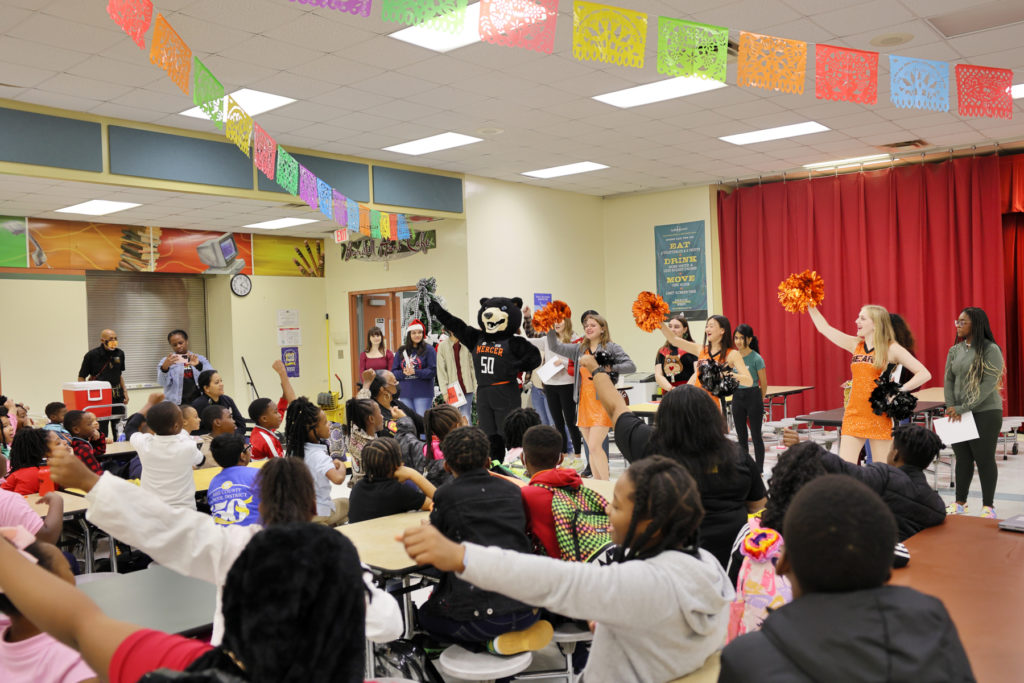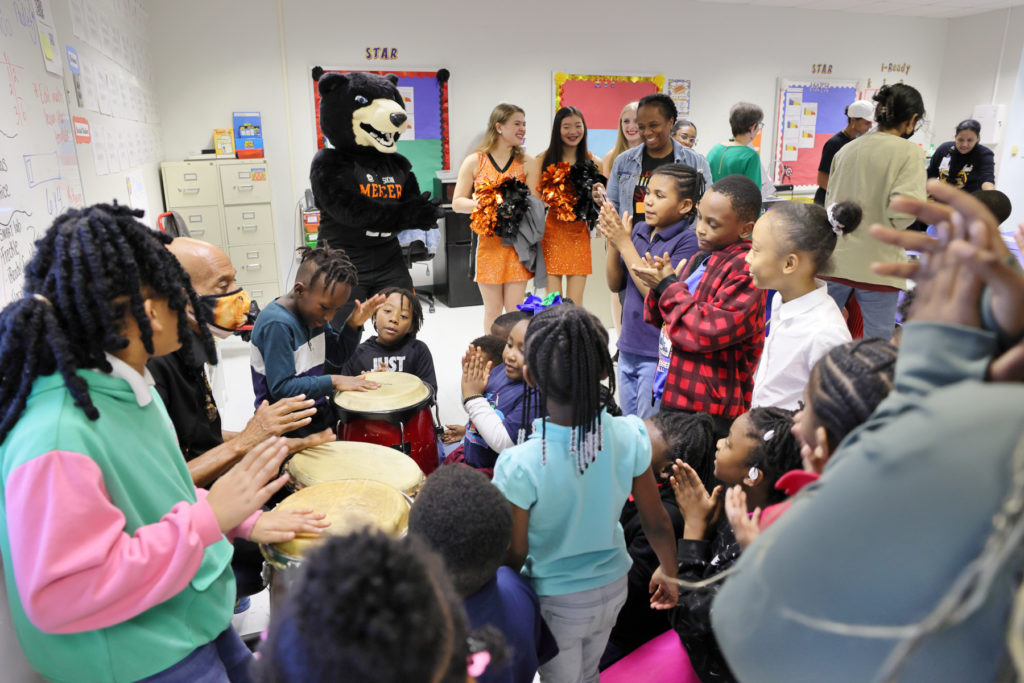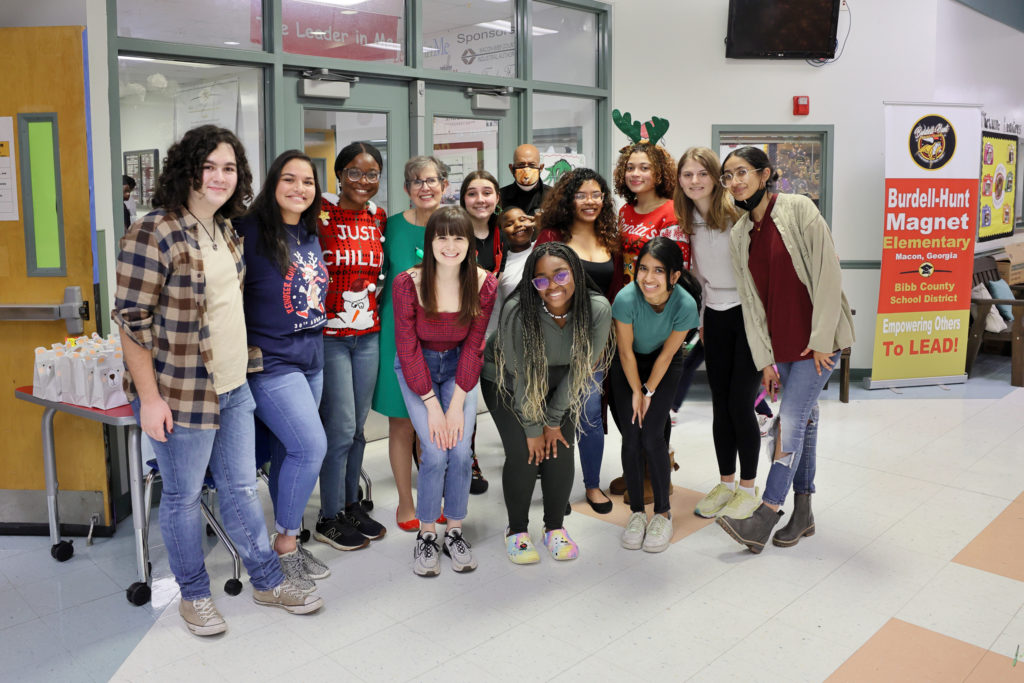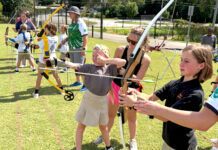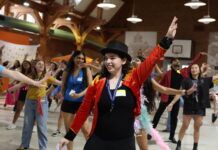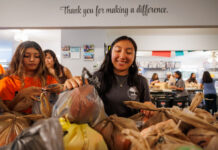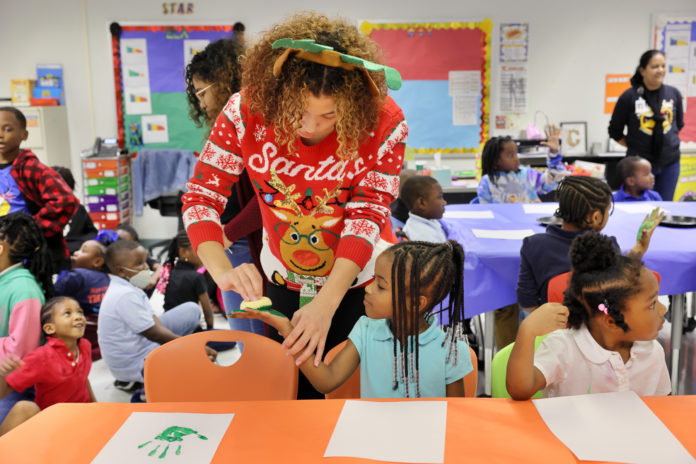
Mercer Service Scholars capped off a semester of volunteering at an after-school program with a holiday celebration for the elementary students they got to know and love.
“We all formed such a tight bond with some of the students,” said Mercer Service Scholar Reema Chande, a sophomore majoring in psychology. “We wanted to do something special just to have that last opportunity to celebrate with them.”
Sixteen students volunteered at the after-school program at Burdell-Hunt Elementary School in Macon as part of their local needs assessment class in the Mercer Service Scholars program.
Part of the University Honors Program, Mercer Service Scholars was designed to give students with a commitment to community service and development the opportunity to take courses that feature service-learning as a central part of the curriculum. Following the local needs assessment course, students take a class in international needs assessment.
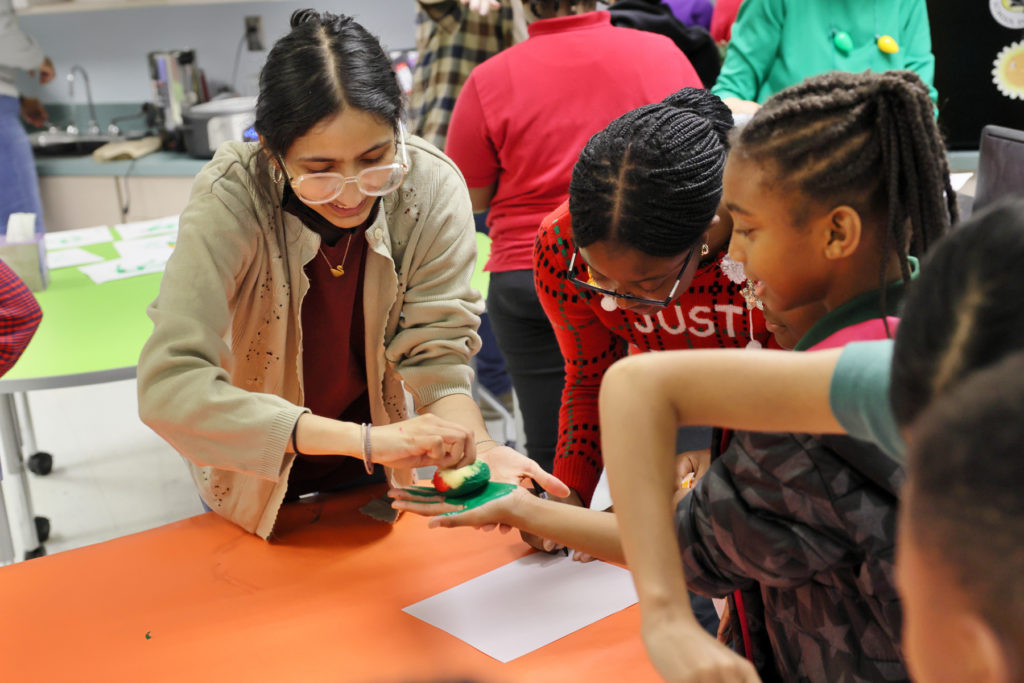
Last year, at the request of United Way of Central Georgia’s Community School’s United Program, the previous cohort in the local needs assessment class conducted research and interviews in Macon’s Fort Hill neighborhood, which includes Burdell-Hunt Elementary, said Dr. Mary Alice Morgan, professor and co-chair of the Department of English, who teaches the class.
This year’s cohort had the opportunity to build on that work by volunteering in Burdell-Hunt Elementary’s first after-school program. The program, offered 3:30-6 p.m. Monday-Friday, is free to families thanks to a federal 21st Century Community Learning Centers grant.
“The after-school program is ideally suited to enhance the academics as well as have fun with the kids,” Dr. Morgan said.
Chande, who is also a Stamps Scholar, said she and her classmates helped with reading and enrichment activities, set up talent shows, led games and played basketball.
“When you hear from students that the work you’ve done with the after-school program has made them want to stay and hang out at school more, it is such a nice feeling,” she said.
The 70 students enrolled in the after-school program became attached to the Mercer volunteers, said Davieá Flowers, academic coach and site manager of the after-school program at Burdell-Hunt.
“They looked for the volunteers every day,” she said. “Most of (the Burdell-Hunt students) knew (the volunteers) by name and their schedules for when they were coming in. There was a sense of respect there as well.”
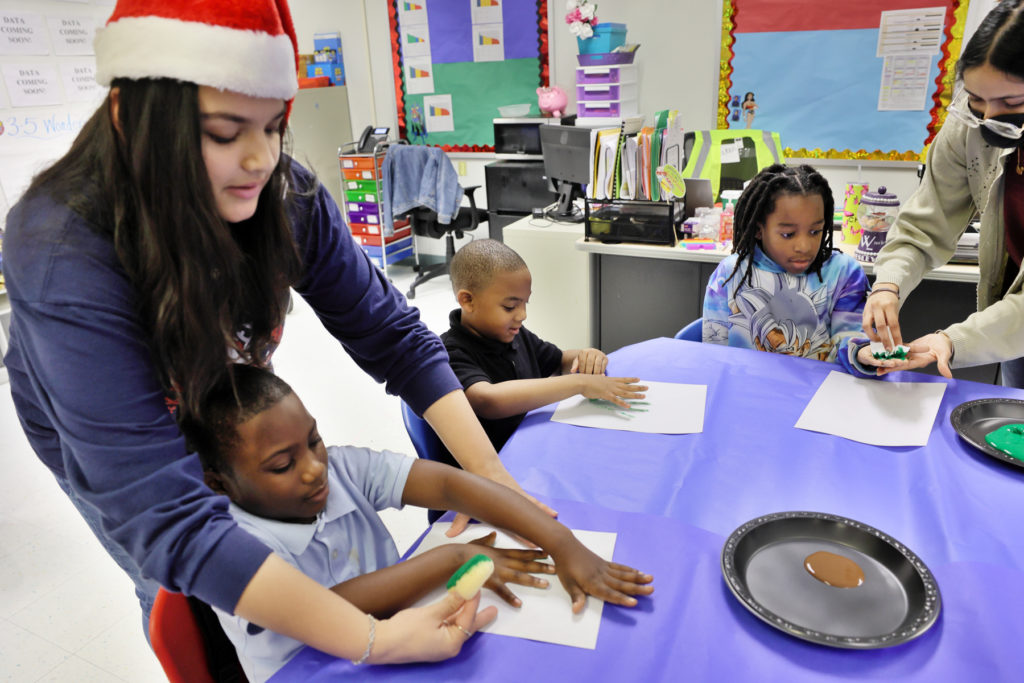
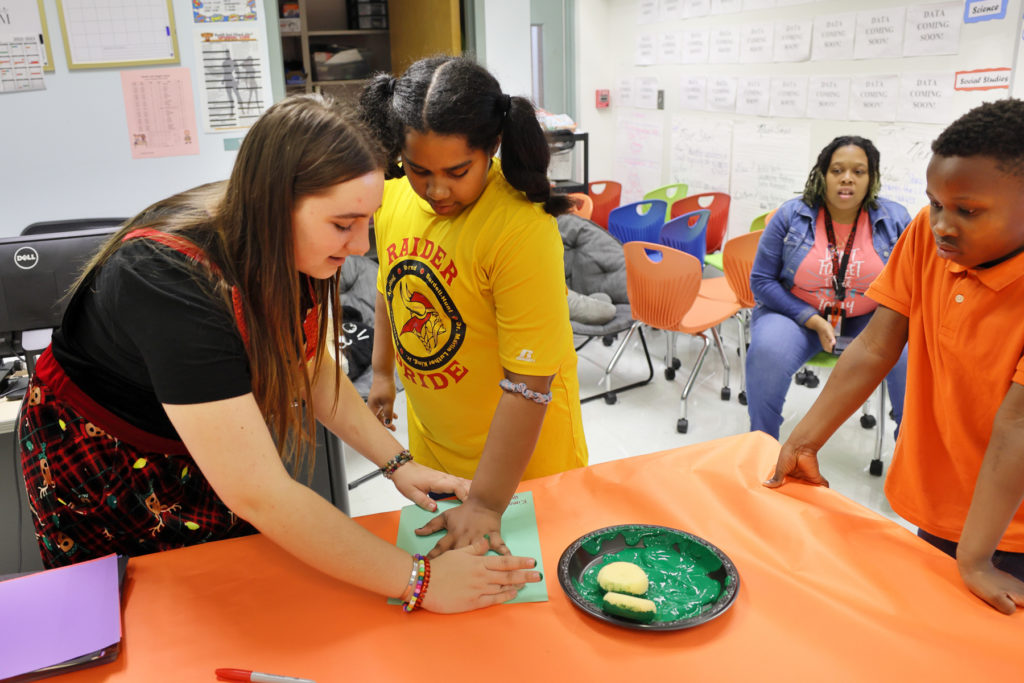
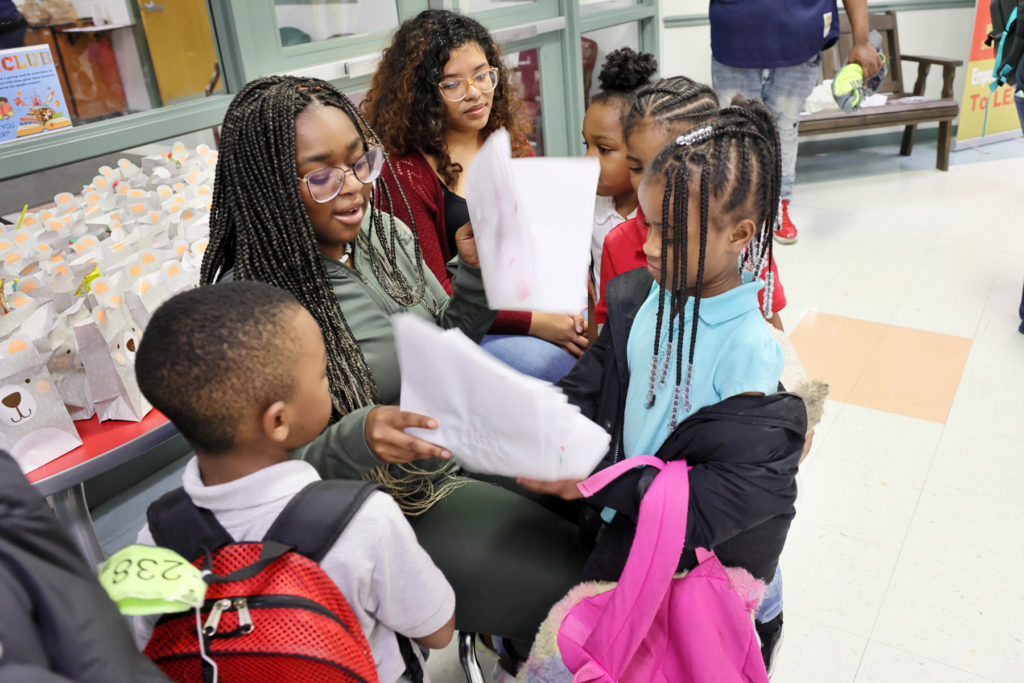
Volunteering at Burdell-Hunt deepened students’ understanding of the course material, which looked at the Macon community’s demographics and statistics related to crime, poverty, food insecurity and health, Dr. Morgan said.
“We have a lot of needs, and sometimes if you don’t become embedded in the community, it really makes you objectify the residents. And demographics are not people. You really need to meet people,” Dr. Morgan said. At the holiday party, “all the (Mercer) students were getting high fives and hugs, and that means that the work we do within the community is not simple, one-time volunteerism.
“You really get to know the community, and that makes it much more genuine and deeper.”
Chande said working at the school put her classwork in a more nuanced light.
“It put a more human perspective on a lot of the research that we’ve done,” she said. “When you look at statistics, they can become very faceless.
“When you actually volunteer with the program and you hear from students about the things that they go through and how income affects their education, it becomes a lot more real, and it is a more qualitative in-depth way of learning.”
At the end of the course, students made policy and program recommendations based on what they learned about Macon and other communities that have found innovative ways to address similar issues, Dr. Morgan said.
Chande said she learned that it’s important to resist the impulse to go into a community and immediately try to fix it.
“You need to take your time rather than just jumping in,” she said. “The intentions there are usually good. The harm begins when it undermines the fact that there are other people in the community already doing the work.
“To prevent harm, you have to realize there already are advocates putting in the work, and you’re there to assist.”
